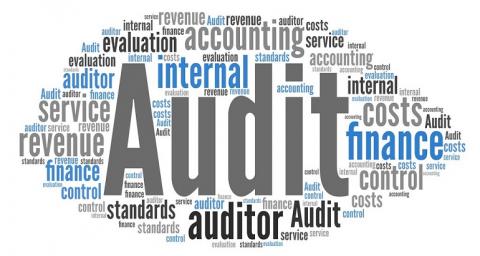course content

Auditing and Financial Control
Auditing and financial control are essential components of financial management and governance within organizations. Both processes play crucial roles in ensuring the accuracy, transparency, and compliance of financial information and transactions.
1. Auditing:
Auditing is an independent examination and evaluation of financial records, statements, and processes conducted by a certified professional known as an auditor. The primary objective of auditing is to determine the reliability and accuracy of financial information presented in the company's financial statements. It involves assessing the company's financial records, internal controls, and accounting practices to verify if they adhere to accounting standards and legal regulations.
Key aspects of auditing:
- External and Internal Audits: Auditing can be performed by external auditors hired from an independent audit firm or internal auditors employed by the organization itself. External audits are typically conducted annually, while internal audits are ongoing and focus on evaluating the company's internal control systems and risk management.
- Assurance and Compliance: Auditors provide an independent assurance to stakeholders, such as shareholders, investors, and regulators, regarding the company's financial information and adherence to accounting principles. The audit also ensures compliance with relevant laws and regulations.
- Audit Report: At the end of the auditing process, the auditor issues an audit report that includes their findings, conclusions, and recommendations. This report serves as an essential communication tool between the auditor and the company's management and stakeholders.
2. Financial Control:
Financial control refers to the set of procedures, policies, and internal controls established by an organization to manage and monitor its financial activities. It aims to safeguard the company's assets, prevent fraud, and ensure financial transactions are accurate and recorded appropriately.
Key aspects of financial control:
- Internal Controls: Financial control involves implementing internal controls to manage financial processes, such as cash management, revenue recognition, and expense management. These controls help minimize risks and ensure financial accuracy and integrity.
- Budgeting and Planning: Financial control includes creating budgets and financial plans that guide the company's financial decisions and expenditures. Regular monitoring of actual financial performance against the budget allows for adjustments and corrections as needed.
- Risk Management: Financial control involves identifying and mitigating financial risks that could negatively impact the company's financial stability and performance.
- Financial Reporting: Timely and accurate financial reporting is an integral part of financial control. It ensures that financial information is available for decision-making and compliance purposes.
In summary, auditing and financial control are essential mechanisms to maintain the financial health and credibility of an organization. Auditing provides independent verification of financial information, while financial control establishes the processes and procedures to manage and monitor financial activities effectively. Together, they contribute to ensuring transparency, accountability, and sound financial management within the organization.